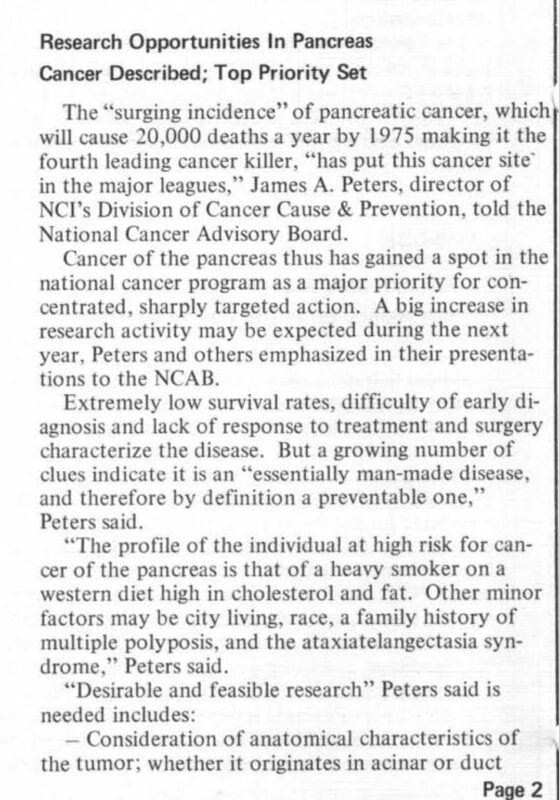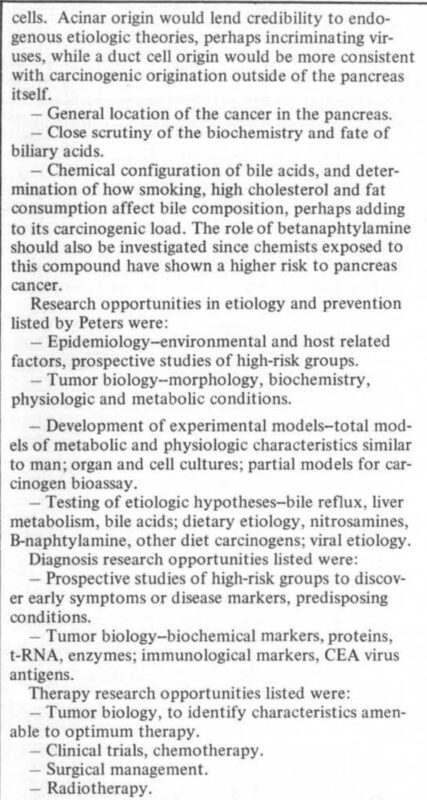
Anirban Maitra: The first concerted attempt at setting research priorities for progress in Pancreatic Cancer
Anirban Maitra, Professor of Pathology and Translational Molecular Pathology at UT MD Anderson Cancer Center shared a post on X:
“Exactly 51 years ago today, the inaugural issue of The Cancer Letter published an article on National Cancer Institute first concerted attempt at setting research priorities for progress in Pancreatic Cancer.
In 1973, there were less than 20,000 deaths each year from this cancer (although surging even then); today that number is 3-fold higher.
Many of the challenges (lack of early detection and effective therapeutic options ) continue to plague the field, although we have made significant advances.
Just look at the treatments available in 1973 for patients – mostly 5FU mono therapy, combined with radiation, mitomycin C.
Only 5-10% of patients undergoing surgery were alive at 5 years.
Today that number stands between 30-40% and growing.”

Read the 1973 National Cancer Institute research priorities for progress in Pancreatic Cancer.
Many of the themes (improved preclinical models, studying cancer etiology, identifying who is at risk, better therapies) are just as pertinent today as in 1973.

Dr. Anirban Maitra serves as Professor of Pathology and Translational Molecular Pathology at UT MD Anderson Cancer Center since August 2013, and directs the Sheikh Ahmed Pancreatic Cancer Research Center. He leads an NCI-funded laboratory dedicated to pancreatic cancer research, focusing on genetics and molecular pathology in human and mouse models. His research aims to advance early detection and interception strategies to enhance patient survival rates in pancreatic cancer.
More posts featuring Anirban Maitra.
-
ESMO 2024 Congress
September 13-17, 2024
-
ASCO Annual Meeting
May 30 - June 4, 2024
-
Yvonne Award 2024
May 31, 2024
-
OncoThon 2024, Online
Feb. 15, 2024
-
Global Summit on War & Cancer 2023, Online
Dec. 14-16, 2023
